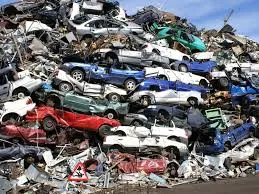

Aug . 19, 2024 05:51 Back to list
Eddy Current Sorting Machines Revolutionizing Material Separation
Eddy current sorting machines have emerged as a critical technology in the recycling and mineral processing industries, providing efficient separation of non-ferrous metals from various materials. This innovative technique leverages the principles of electromagnetism to enhance recycling processes, contributing to environmental sustainability and resource efficiency.
The core operation of an eddy current sorting machine involves the generation of a strong magnetic field through the use of powerful magnets. As materials pass through this magnetic field, conductive metals, such as aluminum and copper, experience an induced electric current (eddy current). This current creates its own magnetic field, which interacts with the external magnetic field, resulting in the ejection of the conductive materials from the feed stream. Non-conductive materials, such as plastics and glass, do not generate eddy currents, allowing for a straightforward separation process.
One of the significant advantages of eddy current sorting machines is their ability to segregate metals from waste streams with high precision. In a world where recycling rates are becoming increasingly crucial to minimize landfill use and conserve natural resources, these machines play an essential role. They are particularly effective in processing electronic waste, automotive shredder residue, and mixed metal scrap, ensuring that valuable materials are efficiently recovered and reused.

Moreover, eddy current sorting machines are automated, which reduces labor costs and minimizes human error. They can handle various feed materials, from shredded plastics to mixed metals, making them highly versatile. Additionally, these machines can operate at high speeds, allowing for large volumes of material to be processed quickly and efficiently. This high throughput is vital for large-scale recycling operations, where time and efficiency directly impact profitability.
The environmental benefits of using eddy current sorting machines cannot be overstated. By improving the recovery rates of non-ferrous metals, these machines significantly reduce the need for mining and extraction activities, which are often environmentally damaging. Efficient metal recovery helps in conserving energy and reduces greenhouse gas emissions associated with the production of new metals. Thus, the use of eddy current technologies aligns with global sustainability goals, promoting a circular economy.
However, it is important to note that the effectiveness of an eddy current sorting machine can be influenced by several factors, including the size, shape, and composition of the materials being processed. Variability in feedstock can pose challenges, and operators must carefully optimize machine settings to achieve the best results. Regular maintenance and calibration are also essential to ensure consistent performance and longevity of the equipment.
In conclusion, eddy current sorting machines represent a significant advancement in material separation technology, enhancing the efficiency and effectiveness of recycling operations. With their ability to accurately separate non-ferrous metals from waste streams, they play a vital role in promoting sustainable practices and resource recovery. As industries continue to prioritize environmental responsibility, the demand for such innovative technologies is likely to grow, contributing to a more sustainable future. The integration of advanced sorting technologies not only benefits individual businesses but also helps secure a cleaner and more efficient planet for generations to come.
Latest news
eddy-separator-for-non-ferrous-metals
NewsAug.22,2025
e-waste-bin-for-collected-spray-cans-sustainable-disposal-solutions
NewsAug.22,2025
dual-shaft-shredder-with-adjustable-blade-gaps
NewsAug.22,2025
hammer-crusher-machine-with-secondary-crushing
NewsAug.22,2025
copper-granulator-our-promise-of-recycling-excellence
NewsAug.22,2025
industrial-shredders-crafted-for-e-waste-recycling
NewsAug.22,2025